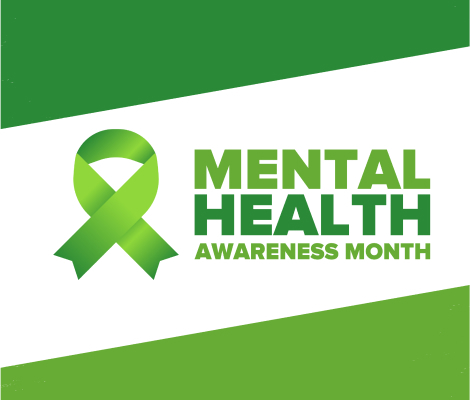There aren’t many things that are more frowned upon than drinking while expecting a child. There is a good reason behind this. Using alcohol during pregnancy is very risky. It goes without saying that it harms you. It is also dangerous for the baby because it might affect its development. This is probably not news to you and you might have even tried to stop drinking. However, that is easier said than done, and you probably need additional support. We at We Level Up are here to help you. First, we will tell you about fetal alcohol syndrome, its symptoms and impacts, and how getting support from addiction treatment centers will help you and your baby live a healthier life.
Skip To:
What Is Fetal Alcohol Syndrome?
Fetal alcohol syndrome (FAS) is a serious health condition that occurs when a baby is exposed to alcohol while in the womb. If a pregnant woman drinks alcohol, it can harm the developing baby. This damage can lead to lifelong issues for the child.
Fetal alcohol syndrome is part of a larger group of conditions called fetal alcohol spectrum disorders (FASD). This group includes various effects that can occur in a baby exposed to alcohol before birth. These effects vary widely, ranging from mild to severe. Fetal alcohol syndrome represents the most severe end of this spectrum. It involves more serious health problems and developmental issues compared to other conditions within FASD.

Fetal Alcohol Syndrome Symptoms
Fetal alcohol syndrome affects individuals differently, depending on their age. Here’s a breakdown of common fetal alcohol syndrome symptoms across different age groups:
- Infants: Babies with fetal alcohol syndrome may have distinct facial features such as a smooth ridge between the nose and upper lip, small head size, and narrow eye openings. They often struggle with poor growth, both in the womb and after birth. Feeding problems and sleep disturbances are also common.
- Children: Children who have FAS struggle with learning. They have a hard time memorizing things, they cannot pay attention for too long. Also, they might find it hard to communicate with others.
- Adults: Having a job, maintaining relationships, living independently… These things are already difficult. When you add FAS to the equation, it becomes much more challenging.
Get Help. Get Better. Get Your Life Back.
Searching for Accredited Drug and Alcohol Rehab Centers Near You?
Even if you have failed previously and relapsed, or are in the middle of a difficult crisis, we stand ready to support you. Our trusted behavioral health specialists will not give up on you. When you feel ready or just want someone to speak to about therapy alternatives to change your life call us. Even if we cannot assist you, we will lead you to wherever you can get support. There is no obligation. Call our hotline today.
(844) 597-1011Impact on Daily Living and Long-Term Development
These symptoms can significantly impact daily living and long-term development. For infants and children, challenges like learning difficulties and behavioral problems can make school harder. They may need extra support from teachers and therapists.
As adults, the persistent effects of fetal alcohol syndrome can make it tough to manage daily tasks and hold a job. Support from family, ongoing therapy, and community resources can be crucial in helping individuals with FAS navigate their lives more effectively.

Get Your Life Back
Find Hope & Recovery. Get Safe Comfortable Detox, Addiction Rehab & Dual Diagnosis High-Quality Care.
Hotline(844) 597-1011Fetal Alcohol Syndrome Causes
The primary cause of fetal alcohol syndrome (FAS) is alcohol consumption during pregnancy. When a pregnant woman drinks alcohol, it passes through the placenta to the developing baby. The baby’s body is less able to process alcohol, leading to higher levels of alcohol in their blood than in the mother’s. This can interfere with the development of tissues and organs and can cause permanent brain damage.
Some fetal alcohol syndrome causes are genetic. They may make a developing baby more susceptible to the effects of alcohol. Differences in genes that manage alcohol processing might influence how severely alcohol affects the baby.
There are environmental factors, as well. They include poor nutrition. An unhealthy diet will make the effects of alcohol on the fetus even worse. Also, general health issues, such as infections or other substance use, can compound the effects of alcohol.
Other fetal alcohol syndrome causes include economic and social background. Lack of access to healthcare or community support can also influence the severity of fetal alcohol syndrome.

How Common Is Fetal Alcohol Syndrome?
Fetal alcohol syndrome statistics show us that this is a prevalent issue. As identified by the Centers for Disease Control and Prevention (CDC), there is nearly one infant with FAS for every 1,000 live births in certain U.S. areas. Another CDC study, which focused on children aged 7 to 9 years, found FAS in 0.3 out of 1,000 children.
Other, more comprehensive assessments that used in-person evaluation of school-aged children in several U.S. communities show prevalence rates of FAS of about 6 to 9 out of 1,000 children.
Many other countries have a problem with fetal alcohol syndrome. It is estimated that about 7.7 per 1,000 children and teenagers have FAS. Of course, not every region is the same. This problem is the most prevalent in the WHO European Region region, with 19.8 cases for every 1,000 people. The Eastern Mediterranean Region of the WHO is different: they have the lowest rates, with a mere 0.1 cases per 1,000 people.
The numbers are particularly alarming in South Africa, which has the highest estimated prevalence of FASD globally, standing at 111.1 cases per 1,000 people. Following closely are Croatia and Ireland, with significant rates themselves—53.3 and 47.5 cases per 1,000 people, respectively. These figures highlight the critical need for global awareness and targeted interventions to address and mitigate the impact of FASD across diverse populations.
First-class Facilities & Amenities
World-class High-Quality Addiction & Mental Health Rehabilitation Treatment
Rehab Centers TourRenowned Addiction Centers. Serene Private Facilities. Inpatient rehab programs vary.
Addiction Helpline(844) 597-1011Proven recovery success experience, backed by a Team w/ History of:
15+
Years of Unified Experience
100s
5-Star Reviews Across Our Centers
10K
Recovery Success Stories Across Our Network
- Low Patient to Therapist Ratio
- Onsite Medical Detox Center
- Comprehensive Dual-Diagnosis Treatment
- Complimentary Family & Alumni Programs
- Coaching, Recovery & Personal Development Events
Prevention Strategies
First of all, you should know that no amount of alcohol is safe during pregnancy. Alcohol can pass from your bloodstream to your baby’s and affect its development. What this means is that even small amounts can be harmful.
Drinking any alcohol at any time during pregnancy creates risks. Binge drinking is especially dangerous. Therefore, the only sure way to prevent fetal alcohol syndrome is to avoid alcohol entirely during pregnancy. If you’re planning to become pregnant or think you might be pregnant, just stop drinking alcohol right away.

Educate Yourself
As an expecting mother, you should know about the risks of drinking while pregnant. When you know that no amount of alcohol is safe, this will motivate you to make healthy choices. When you get to learn the specifics and become aware of how it affects your baby’s brain, you will want to stop drinking.
Awareness programs often provide access to resources like counseling and support groups. Take part in these programs and gain additional support and tools to stay alcohol-free during your pregnancy.
Healthcare providers will help you, too. Here is how what they do:
- Give you personalized advice and answer your questions about alcohol use and its effects.
- Offer screenings and discuss prevention strategies during your visits.
- Connect you with resources and support systems that can help if you’re finding it hard to avoid alcohol.
Get Professional Help
Facing challenges with alcohol use during pregnancy is too much for you to do on your own. We at We Level Up Treatment Centers have specialized programs that address your condition.
We create your treatment plan with care. We consider your situation and make decisions accordingly. We take your needs into account and include support groups, therapy, and educational programs about alcohol dependency. At our alcohol rehab centers, we work on understanding what your triggers are. Once we do that, we develop strategies to help you manage them. To make sure you will be well in the future, we build a network of support. You will need support to stay sober for a long period of time. Also, you will help other people stay sober, as well.
Before any of that, we start with alcohol detox. We need to clear your system first. And while we do it, we make sure you are safe and comfortable. Our team of experts will give you medical support and everything you need during this critical phase.

Are You a Social Drinker or an Alcoholic?
Do you just have a casual drink now and then? Or are you dependent on alcohol? It’s very important you know this, especially if you are pregnant or have a plan to become pregnant.
So, where are you standing when it comes to social drinking vs alcoholism? If you drink occasionally and have a beer at a barbecue or a glass of wine at a wedding, it means you are a social drinker. Usually, people who drink socially have their drinking under control. It doesn’t happen often, and it doesn’t cause trouble in their daily lives. Alcoholism, on the other hand, is a different story. If you are an alcoholic, you have a strong need to drink. You drink even though you know it affects you in many ways. Also, you might actually want to stop and cut down, at least, but you cannot.
If it seems that you are leaning more toward alcohol addiction, you ought to reach out for support. However, this doesn’t mean that you are encouraged to drink socially, either. How much drinking causes fetal alcohol syndrome? Even the smallest amounts carry the risk.
World-class, Accredited, 5-Star Reviewed, Effective Addiction & Mental Health Programs. Complete Behavioral Health Inpatient Rehab, Detox plus Co-occuring Disorders Therapy.
CALL(844) 597-1011End the Addiction Pain. End the Emotional Rollercoaster. Get Your Life Back. Start Drug, Alcohol & Dual Diagnosis Mental Health Treatment Now. Get Free No-obligation Guidance by Substance Abuse Specialists Who Understand Addiction & Mental Health Recovery & Know How to Help.
Verify Your Coverage and Start Your Treatment
Many insurance plans cover part of rehab services, and some cover all of them. What does this include? Detox, inpatient rehab, outpatient services, and sometimes even long-term recovery support. Therefore, you need to learn all the details, make the right decision, and start the right treatment.
At We Level Up Treatment Centers, we accept:
Before you start your treatment, contact your insurance provider. Verify what services they cover. Also, understand prerequisites or authorization requirements. You should choose in-network providers, as they mean lower out-of-pocket costs. Check if the treatment facilities are in-network with your insurance.

Get Help and Protect Yours and Your Baby’s Health
Drinking alcohol brings many risks in any circumstances. And if you are drinking during pregnancy, it affects your and your baby’s life. We know that it is not simple to stop using alcohol or even to decrease the amount. When you are dependent on a substance, your willpower is not enough. You need help, a team of experienced professionals who will help you stop using alcohol and make sure you are safe. Once you stop drinking alcohol, you need to learn how to go on with your life like that and stay sober. Look for support for dealing with fetal alcohol syndrome right away and start living in a way that is good for you and your child.
Experience Transformative Recovery at We Level Up Treatment Centers.
See our authentic success stories. Get inspired. Get the help you deserve.
Start a New Life
Begin with a free call to an addiction & behavioral health treatment advisor. Learn more about our dual-diagnosis programs. The We Level Up Treatment Center Network delivers recovery programs that vary by each treatment facility. Call to learn more.
- Personalized Care
- Caring Accountable Staff
- World-class Amenities
- Licensed & Accredited
- Renowned w/ 100s 5-Star Reviews
We’ll Call You
Sources:
CDC (2018). Data & Statistics on FASDs. [online] Centers for Disease Control and Prevention. Available at: https://www.cdc.gov/ncbddd/fasd/data.html.
Lange, S., Probst, C., Gmel, G., Rehm, J., Burd, L. and Popova, S. (2017). Global Prevalence of Fetal Alcohol Spectrum Disorder Among Children and Youth. JAMA Pediatrics, [online] 171(10), p.948. Available at: https://doi.org/10.1001/jamapediatrics.2017.1919.








